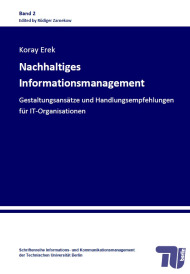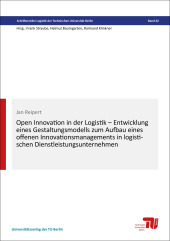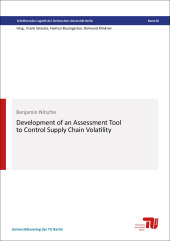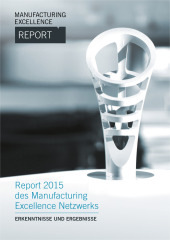Nachhaltiges Informationsmanagement
Gestaltungsansätze und Handlungsempfehlungen für IT-Organisationen

Format: 14,8 x 21,0 cm
Publishing year: 2012
Sustainability has recently gained in importance and has become a key topic not only for debate within society but for corporate management as well. In our modern knowledge society, customer demands and stakeholder claims become increasingly sophisticated and environmental and social issues turn into determinants of business success. Sustainable management builds on the concept of the “triple bottom line”, which stands for simultaneously optimizing economic, environmental, and social performance to secure sustainable competitive advantage for the business in the long-term. The increasing economic, ecological and social significance of information systems (IS) demands for a reorientation of IS management. Ever-growing performance requirements and data amounts and challenges associated with rising energy consumption and e-waste call for new management practices that considers these issues. IT organizations are becoming aware of their responsibilities and start thinking seriously about managing IS in a more sustainable way. This cumulative dissertation illustrates design approaches and derives recommendations for IT organizations by adapting the concept of sustainability to the field of IS management. Following the introduction that describes the methodology and the theoretical background, empirical studies explore the state-of-the-art of Green IT in IT organizations and identify key drivers and motives for sustainability adaptation in practice. The investigations show that while measures for using computing resources efficiently have received considerable attention, the topic of sustainability in IS management is still lacking theoretical and practical foundation. For this purpose, this thesis provides a theoretical foundation and justification of sustainable IS management and suggests several models and frameworks. The transferability of the concept of sustainability in IS management is demonstrated by the use of practice-oriented concepts such as procedural models and the balanced scorecard. Furthermore, a reference model for sustainable IS management is presented. This reference model comprises nine specific areas of action that can serve as a basis for the implementation of an integrated sustainability management in IT organizations. For managing and measuring sustainability in business operations and for enabling a more systematic application of sustainability measures in IS management, this research provides guidance to practitioners and researchers alike.



